Past Symposia and Workshops
Here you'll find reports of workshops and symposia that our institute has organised. More events and reports will be added in time.
2021
2020
International Workshop in the Haus der Universität, Düsseldorf, January 25th 2020
Click here to access the full report of this event.
2019
International Symposium at Kanazawa University, Japan, October 1st & 2nd, 2019
In October 2019, Kanazawa University, HHU and the Genders & Sexualities: East Asia & Europe Network (GSN) organised a joint symposium at Kanazawa University in Japan. The talks approached the field of Gender & Queer Studies from different disciplinary perspectives and not only shone a light on developments in Japanese feminist history and the LGBTIQ movement, but also on pop culture (manga, asadora and video games) in Japan and Germany. Contributions on the fashion of muslim women and female engagement on the Chinese job market placed the Japanese and German works in a transnational context.
Abstracts
- On the Emergence of Gay Conservatism in Japan (Dr. Kazuyoshi Kawasaka)
- Sexual Diversity in German Schoolbooks (Ami Kobayashi)
- Iijima Aiko's Feminist Theory and the Asian Women's Conference (Caroline Ruhl)
- Experiencing Queerness in Video Games: The Case of SWERY’s ‘The Missing’ (Sebastian Sabas)
Same Sex Marriage and Queer Family Formations in Asia and Europe
For many years, members of LGBTIQ communities around the world have campaigned for same-sex marriage rights in various legally and culturally specific ways. While these campaigns have garnered a measure of social and legal recognition of same-sex unions in some Western countries, they are being increasingly discussed politically and represented in popular culture in different countries of Asia. A related but distinct movement of rainbow families is also emerging around the world. A global and growing network that celebrates the annual International Family Equality Day (IFED) was established in 2011, and while associated local/national queer family networks are thriving, regional transnational coalitions within Europe (NELFA) and the Asia-Pacific (APRFF) are also being formed. Challenging heteronormative marriage and family concepts and promoting the “right to marry” and the “right to family” of sexual and gendered minorities, these local and regional initiatives and coalitions are partaking in and shaping a global wave of diverse rainbow family cultures. This panel seeks to trace this new and transnational phenomenon in countries of Asia and Europe, and discusses the legal, social, political and cultural ramifications for same-sex marriage and queer family formations in different countries. We ask, what are the shared legal and social challenges, and what are the transnational strategies and transcultural implications of these new forms of human rights movements? We also critically discuss whether such claimed or newly won rights to same-sex marriage/queer family may be able to subvert and resist the heteronormative logic or if they rather produce new divisions between institutionally sanctioned versus socially rejected forms of queer life choices.
Hypervisibility and Invisibility of Queer Lives and Politics in Neoliberal Japan
This panel explores problems and possibilities of contemporary queer lives and politics in Japan in light of the hypervisibility and invisibility of LGBT rights issues through an analysis of political discourses, as well as representations in television and social media, manga and contemporary literature.
European Conference on Politics and Gender, University of Amsterdam, Netherlands, Juli 5th, 2019
In the last 20 years, LGBT rights and activisms have expanded into mainstream domestic and international politics. Queer studies from Anglophone countries, for example criticism against ‘homonationalism’, have cautiously focused on analysing connections between global liberalism and ‘progress’ of LGBT rights. The promotion of LGBT rights has sometimes been mobilised to justify racist or xenophobic state violence. In the last few years, however, transnational backlash discourses against women’s and LGBT rights and attacks on academic freedom of gender and sexuality studies have become more visible due to growing political influence of far-right populist movements/governments. This panel will explore what is actually happening in local contexts with the backlash against feminism, LGBT rights, and academic freedom of Gender and Sexuality Studies, and explores how we can cooperate and build a transnational researchers/activists’ network against these movements.
2018
Alumni Meeting and Job Fair, Nov. 17-18, 2018, Haus der Universität Düsseldorf

Details coming soon!
Workshop for the 17th Deutschsprachigen Japanologentag, FU Berlin, August 30th, 2018
Details coming soon!
International Symposium at the Haus der Universität, Düsseldorf, Juli 6th & 7th, 2018
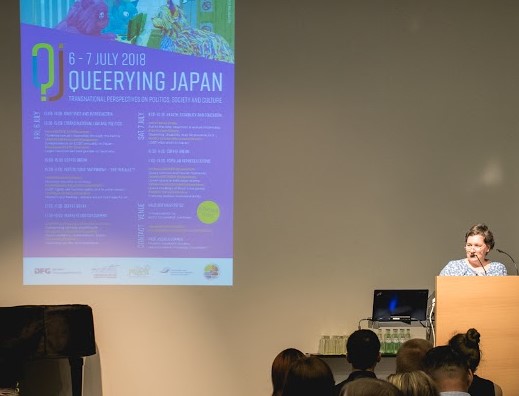
Reports:
Kobayashi, A. (2018). Queerying Japan: Transnational Perspectives on Politics, Society and Culture. Journal Netzwerk Frauen- und Geschlechterforschung, 43, 72–75. [ENGLISH]
Germer, A. (2018). Genders & Sexualities: East Asia and Europe Network (GSN). Bericht zum Auftaktsymposium “Queerying Japan”. Journal Netzwerk Frauen- und Geschlechterforschung, 43, 71–72. [GERMAN]
Talk and Discussion on the Occasion of Japan Day, May 25th 2018, Haus der Universität Düsseldorf

Details coming soon!
Japanese-German Workshop at Heinrich-Heine-University Düsseldorf, February 26th, 2018
Details coming soon!
International Symposium, Feb. 21st, 2018, Ochanomizu University

International Symposium, Feb. 21st, 2018, Ochanomizu University
Organisation: Professorship Modern Japan, Prof. Dr. Annette Schad-Seifert
On February 21, 2018, the Institute for Gender Studies (IGS) hosted the international symposium ‘Singlehood, Living Alone and Work-Life Conflict in Japan’ at Ochanomizu University, organised by Annette Schad-Seifert (Specially Appointed Professor, IGS); Laura Dales (Lecturer, The University of Western Australia) and Swee-Lin Ho (Assistant Professor, National University of Singapore) were invited as keynote speakers. Scott North (Professor, Osaka University) and Nora Kottmann (Lecturer, Heinrich Heine University Düsseldorf) were also asked to participate, as commentators. Social issues of singles were examined from an interdisciplinary perspective, focusing on the structures of household, work and friendship.
In her introductory remarks, ‘Japan’s Never-Married Singles in National Population Surveys’, Annette Schad-Seifert noted that current increases in the single and never-married population is the result of several factors, including general changes in human relationships and lifestyles, as well as conditions of employment and economy. This trend is observed not only in Japan but also in Europe, the United States and other Asian countries. It appears not to be a matter of whether a country is a welfare state or not. However, there have been few empirical studies on this issue. This symposium was convened to deepen the discussion towards future development of the research.
Laura Dales’s presentation ‘Single Women and Their Households’ was based on a series of interviews that she has been conducting since 2009. This work has shown that the depiction of single women in the media, freely enjoying the life of the gorgeous consumer, does not reflect their real lives. ‘Single’, of course, does not always mean unmarried, as is commonly presumed, but includes various conditions. Those who have never been married and have chosen not to marry, divorcees, the widowed, those in cohabitation and members of same-sex couples who cannot legally be married are all accounted single. The advancement of women into the higher education has often been alleged to be a cause of delayed marriage, but Dales’s research has uncovered that other factors, such as class, family support, place of residence and economic condition, all have greater influence than the level of education.
Single women must find a ground for their identity and a source of security from places other than marriage. Work is a socially accepted way to achieve self-realisation and makes economic independence possible. Financial hardship, however, can be severe. The so-called ‘parasite single’, a Japanese characterisation of people older than their late 20s or early 30s who is still living with their parents, may be someone who cannot manage an independent household by their income alone, due to economic difficulties. The availability of work for single mothers with dependent families and responsibility for their care are generally limited to relatively low-paying, non-regular employment. In a family-oriented non-welfare society such as Japan, women in the household are expected to take on the caregiver’s role, making another obstacle to single women.
Women’s work was further explored in another dimension in the following presentation, by Swee-Lin Ho, entitled ‘Gendered Precarity: The Ambivalent and Conflicted Lives of Women Managers in Japan’. Ho conducted an interview study of women managers who place a high priority on work, regardless of their marital status, and she examined the reality of ‘being a manager’. Beginning in the 1990s, a period of continual restructuring began for Japanese companies, in response to the collapse of the so-called bubble economy and the beginning of the promotion by the government of women’s participation and advancement in workplaces. Women employees acquired new opportunities to take on managerial position, although such positions are often nabakari-kanrishoku, or nominal management, having disproportionate workloads and increased responsibility without pay raise or the ability to participate in decision making. In spite of these disadvantages, women generally accept these promotions. Many claim that acquisition of a new business title may lead to obtaining another, better one, while in fact, such a promotion only creates a vicious cycle.
The requirements of structural reform and the promotion of women brought with corporate strategies of cosmetic change that do not produce gains for their workers. Taking advantage of a loophole in Article 41 of Japan’s Labour Standards Act, such organisations utilise managerial positions to reduce payment obligations for overtime, forcing workers to bear the burden of additional work without additional compensation. Due to the weakness of the labour unions, Japanese workers have little power to engage in disputations with their employers. Ho raised the question of what would be required for women managers to obtain fair remuneration for their investments of money, time and effort in learning skills and developing relationships at work.
Scott North drew attention to flaws in the relevant policies. ‘Government initiatives to promote women’, at glance, appear progressive, but a closer look reveals that what is expected from women is the flexibility required to act as shock absorber for general social problems to maintain the male-dominant system. As the working population decreases, women are expected to fill in the workforce. Where the welfare system fails to supply caregivers, women are asked to contribute. The basis for this way of thinking is the 20th century fiction of the family, in which the family is defined as a household for reproduction formed through marriage, created by the Meiji Civil Code more than a hundred years ago. In this fiction, being single is in conflict with social norms and is regarded as a problem. This treatment of women also leads to disadvantages for men: for example, if he does not earn a certain amount, a man is flatly unable to a family. To allow the promotion of women to be more than a slogan, legal assurance of equal opportunity is needed.
The environment of the workplace features the same limitations. Long working hours, discrimination against women and a patriarchal corporate-management system are justified as tradition and custom, and they are sheltered from legal control. In such circumstances, avoiding conflict may require playing a traditional gender role. Women managers may find it unpleasant to accept male domination, as if it were natural. Although this is merely a feature of the system, women managers tend to blame themselves for inability to transcend it, which escalates inner conflict. Political leaders must understand present conditions clearly and bring creativity and sympathy to bear as the confront the single society of the future.
Nora Kottmann spoke of the concept of ‘precarity’, which was featured in the title of Ho’s presentation. This is often related to employment insecurity, but here, the word indicates a greater anxiety and uncertainty, provoked by destabilisation. Instability, in this context, can be seen as an instrument of governance under neoliberalism. Such a system is maintained in part by hierarchic inequality; therefore, precarity and inequality will never be eliminated under a neoliberal administration.
Kottmann continued by illustrating how single women in current society cope with precarious conditions. Her interviews have found that building personal networks and securing personal space must form part of any solution. Single women obtain advice and emotional support from their personal networks more than they do from their families, which were once the main source of this kind of assistance, and they regard this friendship as vital. They also consider it vital to have their own residences or rooms. These spaces are tangible expressions of their freedom. Additionally, Kottmann raised the question of whether this type of need for personal networks and spaces are limited to single women or whether others require them as well.
In the following Q&A session, questions on work-life conflict and the differences between large cities and rural areas were asked, and lively discussion among speakers and audience members ensued. A plan for the symposium was drawn up to explore possible directions for future research on the single society and gender. The participation of a large, enthusiastic audience from both on- and off-campus indicates the widespread interest in the theme. We await the development of research along the lines laid out in this symposium and future opportunities for reporting research products.
2017
Symposium with Colloquium („Equal Participation and Diversity“) Nov. 30th - Dec. 1st, 2017, JDZB Berlin

On November 30, 2017 the Japanese-German Center Berlin (JDZB) hosted the symposium on “Democracy without Equality? Gender Policies in Japan, Germany and South Korea” in cooperation with the Friedrich-Ebert-Stiftung (FES) and with the support of the Japan Society for the Promotion of Science (JSPS). The purpose of this symposium was to bring together preeminent scholars in the field of gender studies from Germany, Japan and South Korea to present and discuss the state of gender equality in those countries. The title of the symposium “Democracy without Equality” might at first seem contradictory. Democracy is after all built on the ideal that everyone – men and women – is bestowed with equal rights. However, while Germany, Japan and South Korea can certainly be considered modern democratic states, full gender equality is guaranteed in theory but remains contested in practice. The state of gender equality in these states differs as do the policies implemented to guarantee it as well as the activism undertaken by civil society. The presenters at the conference all sought to shed light on different aspects of gender equality in their respective countries and to answer the question: “What is the state of gender equality and why is it so difficult to achieve?”
PhD-Workshop, June 9th - 10th, 2017, Haus der Universität

Details coming soon!
2016
Symposium, May 20th, 2016, Haus der Universität
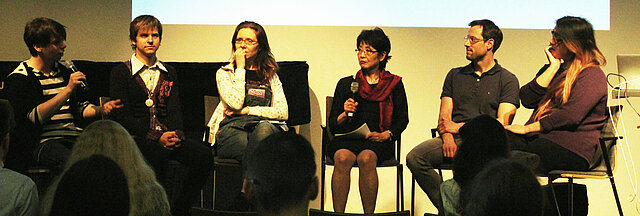
Details coming soon!
2015
Symposium, Oct. 1st - 3rd, 2015, Schloss Benrath and Haus der Universität Düsseldorf

Details coming soon!
Symposium, May 22nd, 2015, Haus der Universität Düsseldorf
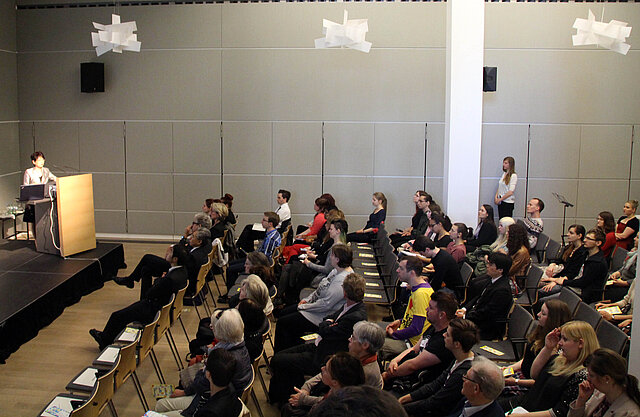
Details coming soon!
Symposium, Jan. 9th. - 10th, 2015, Haus der Universität Düsseldorf
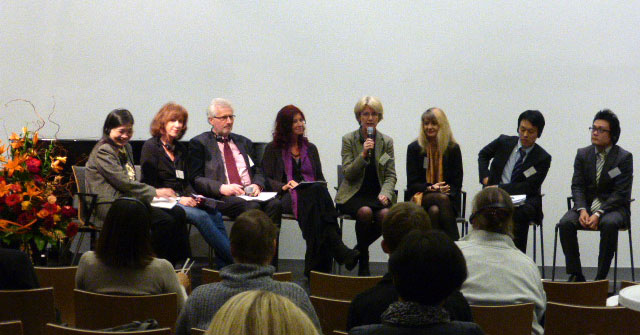
Details coming soon!
2014
Student Conference, July 12th, 2014, Haus der Universität Düsseldorf

Details coming soon!
2013
Symposium, November 29th-30th, 2013, Haus der Universität Düsseldorf

Details coming soon!
Workshop, Bachelor Plus, Juli 12th, 2013, HHU
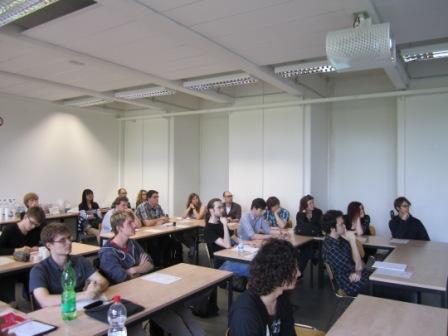
Details coming soon!
A German report on the event can be found here.
2012
Panel, August 30th, 2012, 15th Deutschsprachiger Japanologentag, Zurich
Details coming soon!
Workshop, Bachelor Plus, Juli 28th, 2012, Lecture Hall ULB, HHU

Details coming soon!
Student Symposium, Februar 4th, 2012, HHU
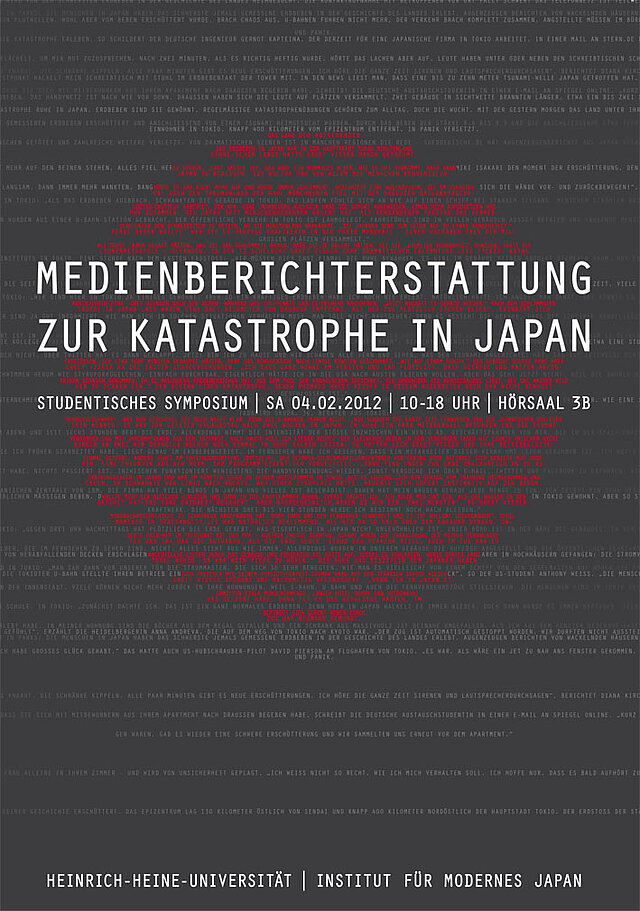
Details coming soon!
2011
Workshop, Juli 1st-2nd, 2011, HHU
Details coming soon!
Symposium, June 17th, 2011, Goethe-Museum Düsseldorf

Details coming soon!
Workshop, Bachelor Plus, June 11th, 2011, Lecture Theatre 2B, HHU
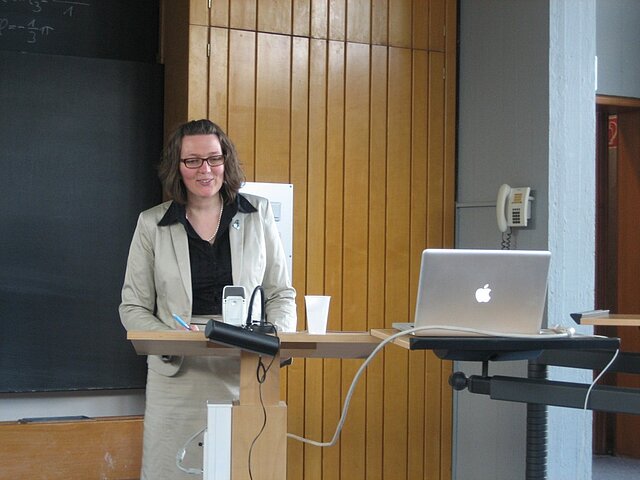
Details coming soon!
Student Symposium, May 21st, 2011, Lecture Theatre 3B, HHU
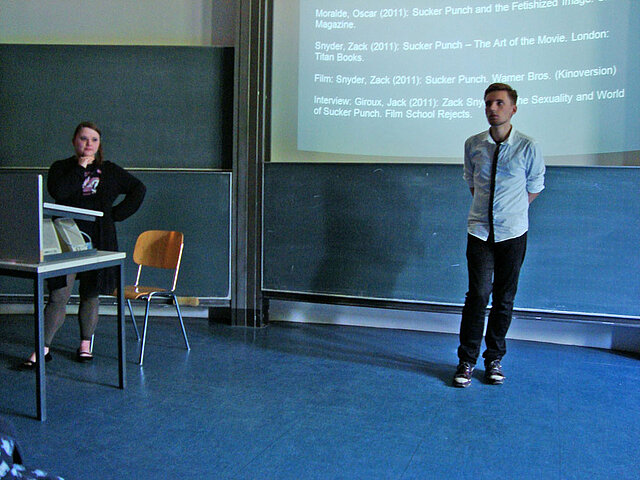
Details coming soon!
German reports on the event can be found here.
Symposium, May 20th, 2011, Goethe-Museum Düsseldorf
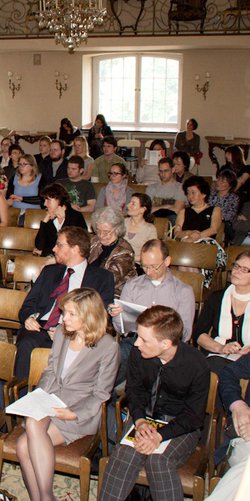
Details coming soon!
German-Japanese Workshop, March 3rd-5th, 2011, Mickeln House (Düsseldorf)

Details coming soon!
2010
17th Gender-Workshop, November 25th-26th 2010, Frankfurt
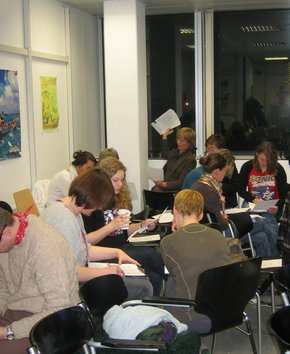
Details coming soon!
Workshop, June 18th, 2010, Heinrich-Heine-Saal

Details coming soon!
Workshop, March 11th-13th, 2010, Mickeln House
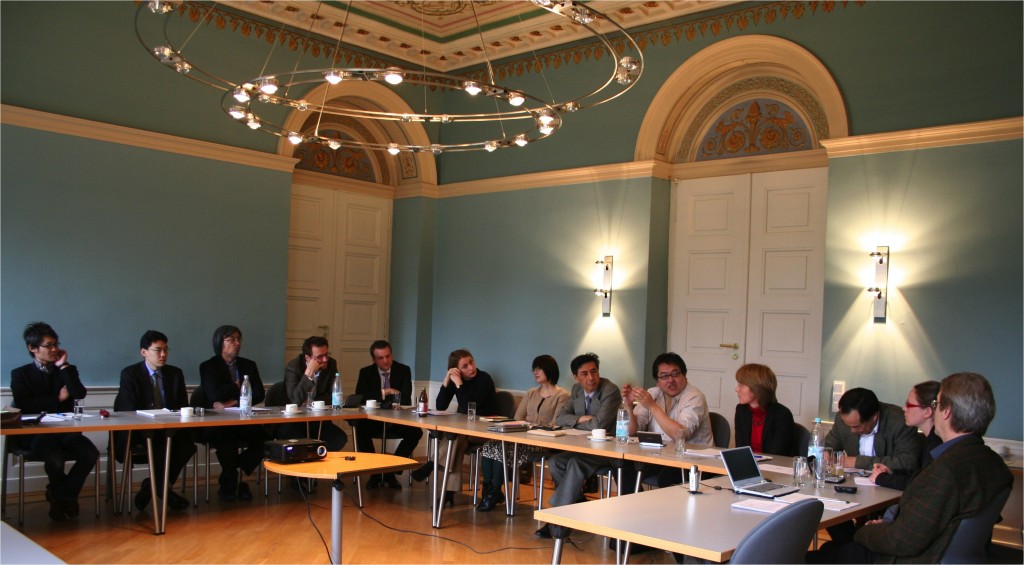
Details coming soon!
January 29th, 2010, Großer Saal, ULB Düsseldorf
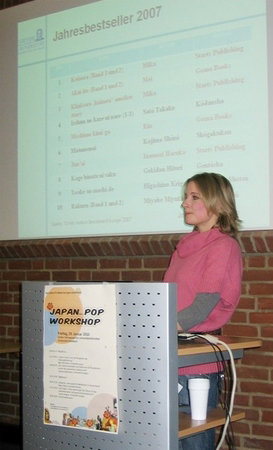
Details coming soon!
2009
Workshop, March 18th-20th, 2009 HHU Düsseldorf
Details coming soon!


